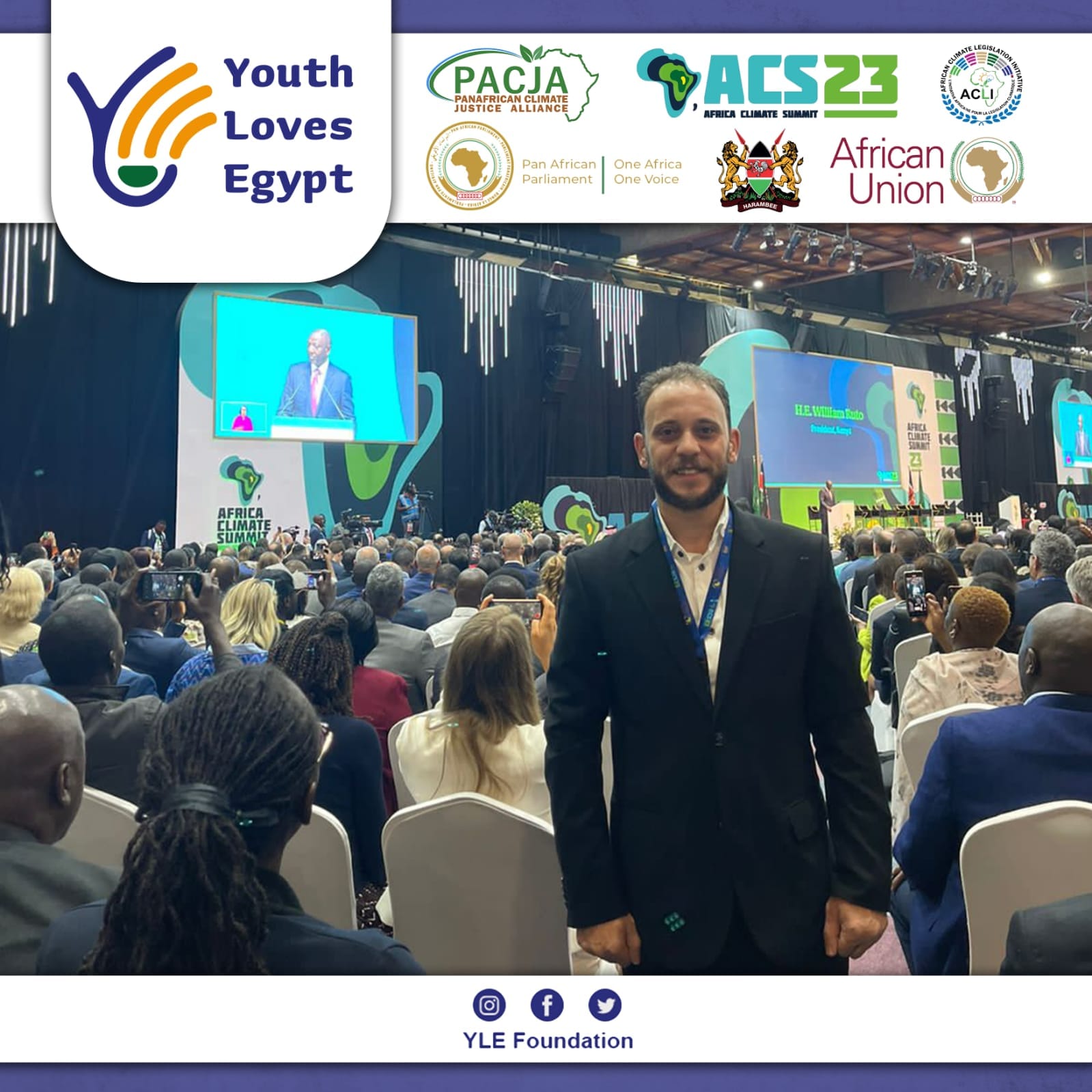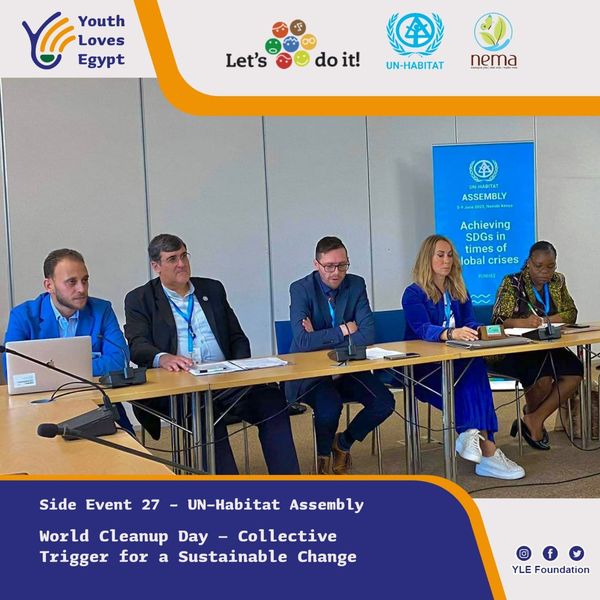Ahmed Fathi, CEO of the "Youth Love Egypt" Foundation in Nairobi, Kenya, participated in the opening session of the Africa Climate Summit in Nairobi. The Kenyan President launched the summit, which was attended by the Director of the United Nations Framework Convention on Climate Change (UNFCCC), the UAE Minister of Environment and Climate, the Ambassador Sini N'Gou, Director of the Africa Adaptation Initiative, Dr. Josefa Sacko, Commissioner for Agriculture and Rural Development at the African Union, and the Special U.S. Climate Envoy.
This event was a momentous moment of inspiration and hope, bringing together world leaders such as President William Ruto of Kenya, decision-makers, and young activists from all over the continent to discuss the climate crisis and set a course for a more sustainable future.
I was particularly moved by the perspectives of leaders and civil society representatives. Among them was Dr. Methika Moinda, Executive Director of PACJA, and his vision of the role of NGOs.
The summit generated a wave of optimism by emphasizing the need for collective action to address climate change. The summit set the stage for transformative action, and I am more determined than ever to be a key driver of positive change in the field of climate action.
Over the last week, African climate week and African climate summit was held in Nairobi, Kenya to build momentum ahead of the UN Climate Change Conference COP28 in Dubai, the following are the main outcomes of the 2 events:
1-The Africa Climate Summit 2023 (ACS23) concluded with the 'Nairobi Declaration,' aimed at giving Africa a united voice in global climate discussions.
2-The declaration includes recommendations, pledges, and demands to enhance Africa's influence in international climate negotiations.
Key points in the declaration:
Calls for global action to reduce emissions.
Advocates for reforms in multilateral financial systems, debt relief, and restructuring.
Emphasizes green investment opportunities in Africa.
Urges world leaders to support a proposed carbon tax on fossil fuels, maritime transport, and aviation.
Calls for the fulfillment of the $100 billion annual climate finance pledge.
The Nairobi summit attracted high-level global leaders, over 20 heads of state, and 30,000 delegates.
The summit resulted in substantial financial commitments, including $23 billion for green growth and climate efforts across Africa.
3-Activists, civil society members, energy experts, and health professionals have criticized the declaration for not being inclusive and radical enough.
Critics expressed concerns about the presence of Western delegates compromising Africa's push for climate justice.
4-Groups opposing carbon markets condemned the summit's endorsement of such markets.
5-Health practitioners were disappointed by the exclusion of health-related issues from the summit's main agenda despite the strong link between health and climate change.
6-Climate experts proposed alternative climate action strategies to address climate change effectively.
7-Mohamed Adow, Director of Power Shift Africa, criticized carbon markets and expressed concerns about Global North countries' involvement in setting up carbon markets in Africa.
8-The exclusion of health issues from the summit's main agenda was regretted by health experts, given the significant impact of climate change on health, particularly in sub-Saharan Africa.





